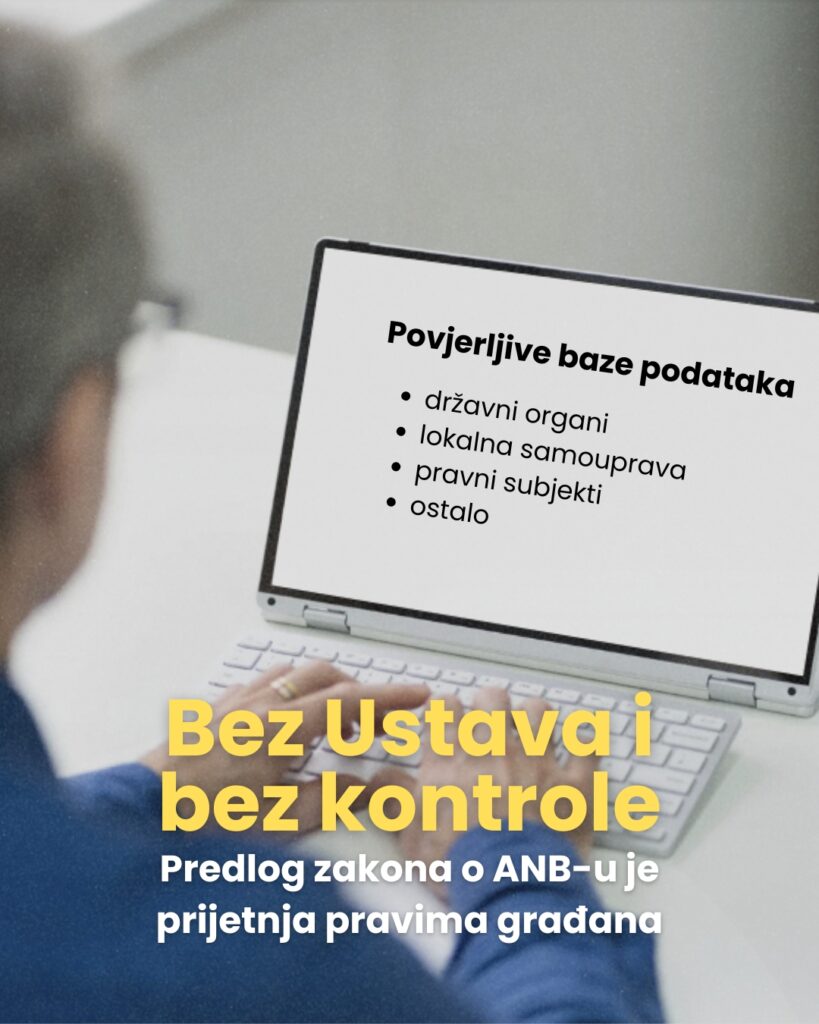Human Rights Action (HRA), Centre for Civic Education (CCE), and Center for Women’s Rights sent a letter today to Prime Minister Spajić, urging the immediate withdrawal of the Draft Law on the National Security Agency (NSA) in order to align it with the Constitution and international human rights standards.
We particularly criticized the fact that no public debate was conducted on the proposed provisions, nor was the Draft Law aligned with the Constitution or international human rights guarantees.
The Draft Law grants the NSA unrestricted access to databases held by state authorities, local self-governments, legal entities, and “other subjects” without any form of oversight, leaving the protection of personal data entirely at the discretion of national security officers, reminiscent of an Orwellian state.

Although in April this year the Committee for Human Rights expressed expectation that Montenegro, through the new NSA law, would provide a safeguard in the form of judicial approval for access to databases managed by state authorities as well as legal entities such as banks or NGOs, the Draft Law does not contain such a safeguard.
The Draft Law also proposes giving the ANB authority to covertly collect data on users’ electronic communication, including traffic and location data, as well as records of unsuccessful communication attempts, without court approval. This provision was declared unconstitutional by the Constitutional Court in 2014, when it annulled Article 257, paragraph 2 of the Criminal Procedure Code. Reintroducing such powers undermines existing legal safeguards.
The Draft Law also provides the NSA with the authority to collect data without judicial oversight by accessing the information and communication systems of state authorities, public administration bodies, local self-government and local administration units, as well as legal entities exercising public powers (Article 15, point 5). This measure also undermines the right to privacy, as it allows the NSA to review all electronic records without judicial supervision, including those containing sensitive information such as medical records, data on social protection, tax and financial records, child protection information, and other data falling under the jurisdiction of public administration and local government bodies. The Constitution guarantees the right to the protection of personal data and stipulates that everyone has the right to be informed about the data collected on them, as well as the right to judicial protection in the event of abuse. Without judicial oversight of such measures, the exercise of these constitutional rights is practically impossible.
The Draft Law on the NSA has been submitted to the Parliament under an urgent procedure and is already scheduled for discussion by relevant committees on Tuesday.
Our organizations will inform international human rights bodies monitoring the situation in Montenegro about the problematic provisions of the Draft Law.
